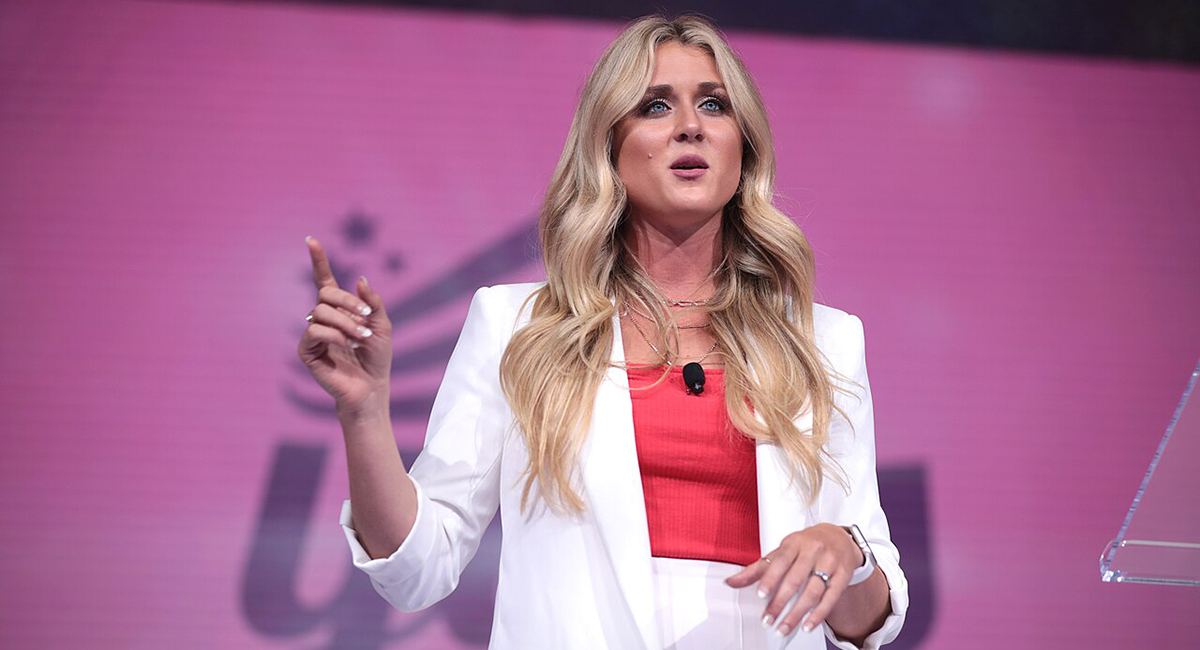The police department of San Francisco State University (SFSU) has ruled that charges are “unfounded” and suspended an investigation into last April’s attack on NCAA swimmer Riley Gaines. The action seems odd given the nature of the attack and the denial of Gaines’ right to free speech.
Gaines came to discuss the issue of women like herself being forced to compete against swimmers such as Lia Thomas, who competed as William Thomas on the University of Pennsylvania men’s team without much success. Against the 5-foot-7 Gaines, the 6-foot-1 Thomas managed a tie for fifth.
Thomas’ gender status is a matter of biological science, not what Thomas happens to think of himself, or what the NCAA rules. This is the same organization that strips student-athletes of their right to market their name and image when they play college sports. A university campus is a good forum for debate, but, at SFSU, with no warning from the administration, Riley Gaines found herself confronted by a crazed mob.
“They were everything under the sun,” Gaines told reporters, “women, men, men dressed as women, women dressed as men—and everything in between.” The mob “flickered the lights” as Gaines was assaulted and “hit multiple times,” before a woman claiming, “I’m the police,” moved Gaines into a room. There Gaines was held hostage for four hours, with the mob demanding money for her release. Only San Francisco city police succeeded in removing the swimmer to safety.
Under California law, battery is “willfully touch[ing] someone with force, even if it does not injure the victim.” Assault is the “unlawful attempt ... to cause a violent injury to another person.” Kidnapping involves holding “someone through force or fear” and making “the person move ... a substantial distance” without consent.
SFSU police would seem to have a strong case for all three offenses, but after nearly a year, campus police believe charges are unfounded and have dropped the investigation. No word of any SFSU students or faculty suspended over the assault.
By all indications, Gov. Gavin Newson, a former mayor of San Francisco, has issued no official statement on the SFSU event. State Attorney General Rob Bonta, a supporter of “transgender students’ rights,” has shown no interest in the case. Reporters seem unaware that the attack on free speech has been going on for some time.
In 1983, Jeane J. Kirkpatrick, U.S. ambassador to the United Nations, came to the University of California at Berkeley, crown jewel of the University of California system, to lecture on “Human Rights and Wrongs in the United States.” A group called Students Against Intervention in El Salvador disrupted her speech, and Kirkpatrick canceled a second lecture, remarking, “I have not seen a group so interested in denying free speech and discussion.”
The UC Berkeley student senate twice refused to criticize the disruptors and, according to the New York Times, “rejected a firm letter of apology” for Kirkpatrick. Instead, it sent a letter stating that “the intent was to register a vocal dissent against the human rights policy of the Reagan Administration and not to prevent the audience from hearing.” So much for free speech, open debate, and civil society at UC Berkeley.
Kirkpatrick wasn’t hit or taken captive, but even UC bosses acknowledged that the campus had “succumbed to mob rule.” As Kirkpatrick would understand, that’s the dynamic in play at San Francisco State University, where the administration allowed a crazed mob to attack Riley Gaines and prevent her from speaking.








